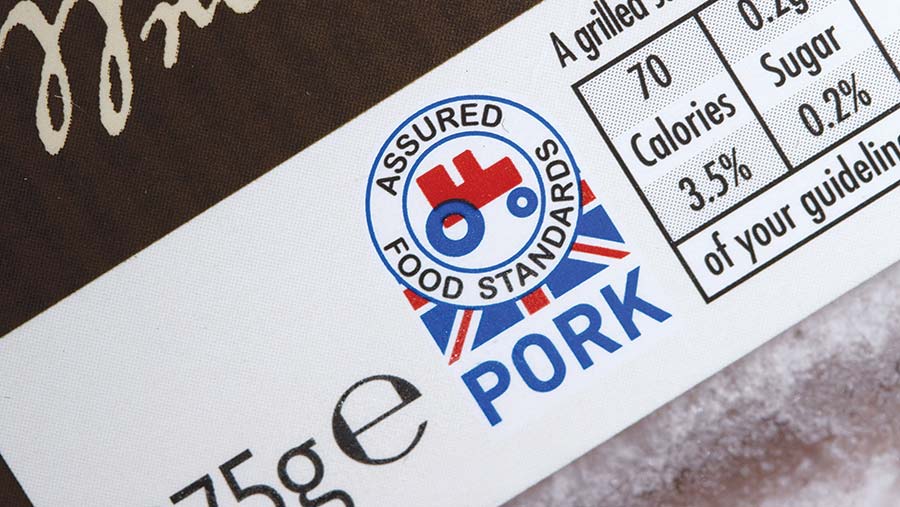Struggling pig farmers demand greater support from retailers
 © Tim Scrivener
© Tim Scrivener Pig farmers are seeking meetings with major retailers and the food service sector to urge them to reduce imports of pork and reaffirm their commitment to the British product.
The National Pig Association (NPA) said it wanted to remind buyers of the urgent need to support British producers – who produce high-welfare pigs, in comparison with some of their European counterparts.
Seven supermarkets – Aldi, the Co-op, Lidl, M&S, Morrisons, Sainsbury’s and Waitrose – already source 100% British fresh pork.
See also: Producers urged to contact banks as pig prices plummet
However, there has been a rise in cheaper imports of pigmeat, including offal, processed hams, bacon and sausages, which increased by more than 19,000t between 2014 and 2015.
Imports of EU pigmeat are cheaper, partly because of the strength of sterling, but also because the British pig industry has a higher cost base as a result of higher-welfare husbandry.
Producers urged to speak to banks
The NPA has urged pig producers to contact their banks about potential overdraft facilities before cashflow pressure becomes even more serious.
Most would be operating in the red for some or all of this year as the European pig cycle reaches its lowest point in more than half a decade, driven by higher output and Russia’s embargo on EU pigmeat, said the NPA.
British producers need about 139p/kg deadweight to cover all costs, including reinvestment, but eight weeks of price falls have put the SPP at 119.09p/kg.
“Local [bank] managers have far less freedom and flexibility, and putting new arrangements in place can now be a lengthy process, involving policy-makers further up the banking chain,” warned NPA vice-chairman Richard Longthorp.
Zoe Davies, NPA chief executive, said the situation facing UK producers was horrendous. Although they were getting a 20-30p/kg premium, compared with the rest of the EU, prices were well below production costs.
The Standard Pig Price (SPP), calculated from data supplied by abattoirs, has fallen below 120p/kg, putting serious pressure on cashflows, even when maintenance and reinvestment is on hold. It is estimated that, as a result, most people are losing £7 on every slaughter pig sold.
The NPA said this was not a sustainable position and the only reason there had not been a bigger exodus from the industry was that most producers could not afford to quit, as the cull sow price has more than halved in 12 months.
Dr Davies said the NPA was consistently pushing the message to consumers about why they should eat British. It would also be reminding retailers and the food service sector about the importance of traceability and the need to support producers if they wanted to see reliable supplies of quality British pork continue.
“Producing high-welfare pigs outdoors or on straw carries a significant cost disadvantage and retailers must be mindful not to kill the golden goose.
“If they do, they will have let down their suppliers and their customers, who continue to demonstrate they want reasonably priced high-welfare, quality-assured British pork.”

